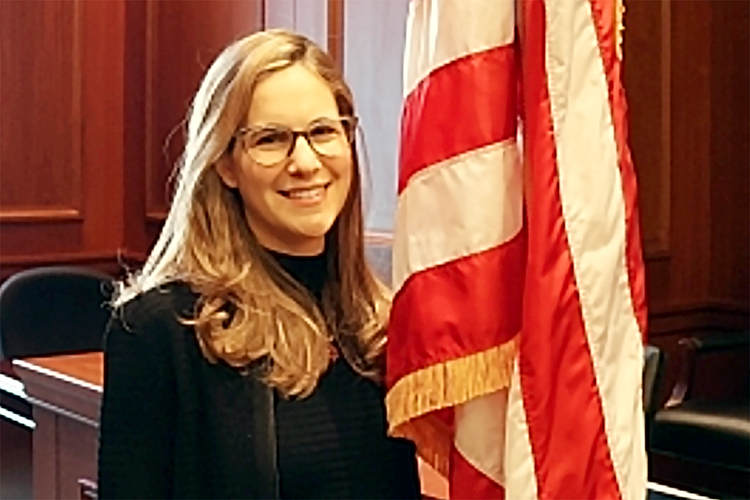Georgetown Law teams up with 2 firms to create 'low bono' law firm

Photo of Victor Li by Saverio Truglia.
When Sheldon Krantz, a retired DLA Piper attorney and adjunct professor at Georgetown University Law Center, published his book, The Legal Profession: What Is Wrong and How to Fix It, in 2013, one of the biggest problems he identified was that there’s a large swath of low-income individuals and families that can’t get legal representation because they make too much money to qualify for free legal aid but don’t make enough to afford most private attorneys.
Turns out Georgetown Law was interested in trying to fix that problem. Approximately two-and-a-half years ago, Peter Edelman, faculty director for the Center on Poverty and Inequality there, came up with an idea for a nonprofit “low bono” law firm dedicated to providing affordable legal representation for this economic bracket. Approximately two years ago, Arent Fox came aboard and agreed to help Georgetown with the firm, but it wasn’t until Krantz and DLA Piper signed up approximately six months ago that things really kicked into hyperdrive.
On Monday their efforts became reality when Georgetown Law announced it has teamed up with DLA Piper and Arent Fox to create a new nonprofit law firm designed to help low-income individuals with their civil law needs. The DC Affordable Law Firm, scheduled to open its doors in October, will be staffed by six Georgetown Law graduates. The school will provide the six graduates with 15-month fellowships to work at the firm, and will offer a cost-free LLM program. Meanwhile, both Arent Fox and DLA Piper will provide attorneys to act as mentors and advisers. Arent Fox will also provide free office space while Krantz will be the firm’s executive director for the first year.
“Georgetown Law has a very strong commitment and mission to improving access to social justice,” says Georgetown Law Dean William Treanor. “This is a crucial issue. There are about 100,000 people in D.C. alone who have real legal needs but are just above the legal aid eligibility limit and can’t afford to pay for lawyers.”
“The low bono firm will give our grads tremendous practical experience,” says Treanor. “They’ll have their own cases and take the lead on negotiations. Plus, they’ll be supervised by some of the best experts and lawyers available.”
Treanor notes that the school looked at numerous funding options before getting the idea to partner with existing law firms. “There may be significant time between when you start the practice and when you start receiving fees,” he says. Having overhead costs like office space and attorney supervision taken care of was important to making DCALF a reality.
According to a 2008 report from the District of Columbia Access to Justice Commission, the most underaddressed areas of civil law for low-income D.C. residents are housing, family, employment, consumer and estate planning. In that vein, Marc Fleischaker, partner and chair emeritus at Arent Fox, says the firm intends to focus on those areas.
“We haven’t made any final decisions,” says Fleischaker. ”But those are the areas with the most demand for legal services.” He also says that the firm will mainly look to represent working class individuals making between $25,000 and $50,000 per year. The firm will look at forms of legal fees other than hourly billing, including small retainers and prepaid legal insurance options, as well as utilizing fee-shifting statutes where appropriate.
Treanor hopes other law firms and law schools will follow DCALF’s business model and create their own nonprofit low bono law firms. In that vein, Georgetown’s McCourt School of Public Policy will study the model with the expectation of publishing academic papers and law review articles about the firm. “Several law schools have put together incubator programs, “ Treanor says. “However, our program offers a level of training which is unique.”
A list of incubator programs can be seen here.
Victor Li writes the LawScribbler column for the ABA Journal. You can follow him on Twitter at @VictorLi_ABA.
Write a letter to the editor, share a story tip or update, or report an error.


